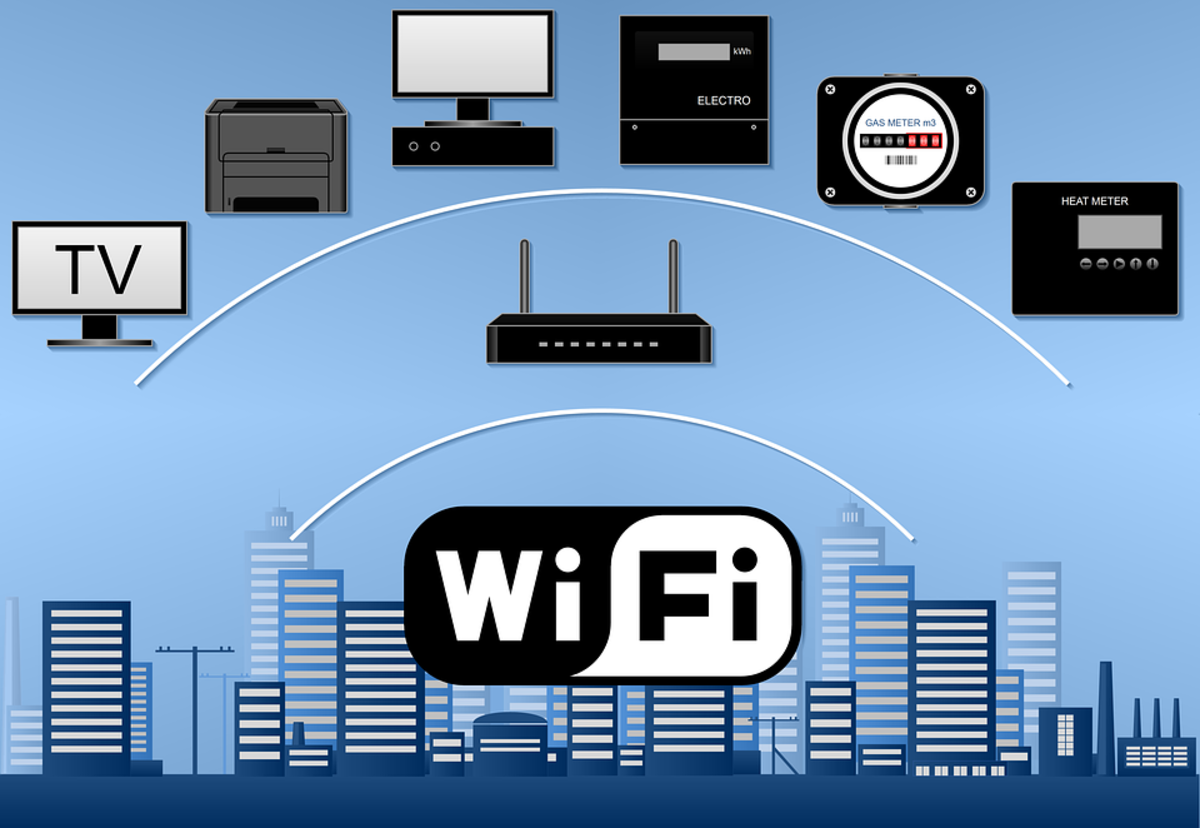Use an Ethernet cable to directly connect your router or modem to your device before running the test for the best results. This will display your upload and download speeds as well as your ping time. Your signal may be improved and stabilized by moving or restarting your router for speed tests.
Placement of Your Wi-Fi Router Is Important
The position of your router may reduce signal strength. Keep it away from potential signal-blocking objects like radios, microwaves, and dense/thick walls. Additionally, you should remove it from the floor because other signals might pass through the floor and affect your internet. The center of your house, on a high, open area, is the ideal location for your router. In order to improve internet signals for gaming devices farther away from your router, you can strengthen your current Wi-Fi signal by adding a Wi-Fi repeater or extender. If your router has antennas, positioning them so they form a “V” shape, resembling “rabbit ears,” will transmit the connection straight up and down through ceilings as well as horizontally through walls for all-around coverage.
Tips for Enhancing Your Wi-Fi
Make it a routine to restart your router once or twice a month so that it can “refresh” and remove any accumulated data. Invest in a new router. Find a long-range, high-quality router if it’s an older model to get the fastest internet speeds. If you experience slow internet speeds in some parts of your home, invest in a Wi-Fi extender to offer a more reliable Wi-Fi connection everywhere you are. In case other users have discovered a means to steal from your connection, increase your security. Use WPA2 security and complicated passwords.Change your Wi-Fi frequency from 2.4 GHz to 5 GHz, which offers 23 overlapping channels as opposed to 2.4 GHz’s 16 channels, which can enhance speeds.
Malware and Throttling Can Cause Problems
Malware can infect the hardware, software, or applications on your computer. Internet malware is one type, and it can infect software programs like web browsers. This type of viral infection can open several browsers simultaneously, which slows down internet rates. It’s important to have your antivirus or antimalware software set up to automatically scan your PC on a daily basis. Test your internet speed in the evening, then again in the morning or during the day. Throttling is most likely not the problem if the speeds are comparable. If they differ, throttling might have taken place. When you go over your plan’s data allotment, internet service providers frequently slow down your connection at peak times; some have even been accused of doing so for particular websites or activities. If so, it might be time to adjust your internet service plan.
Should You Upgrade Your Internet Service Plan?
Your internet speed plan has nothing to do with the extensive range of possible causes for poor Wi-Fi or unstable internet connections. When a household is unhappy with their service, a common error is to upgrade their speed plan before analyzing whether a faster speed plan would address the underlying issue. So, before thinking about an update:
Consider upgrading if disconnecting some of your devices is the only way to get the internet speeds you require for your online activities. A greater bandwidth is also required if you observe that your Wi-Fi connection degrades when you have guests connected to the Wi-Fi. You may want to improve your rates to a plan that delivers faster download and upload speeds if you frequently encounter delays when doing higher-bandwidth operations, such as live-streaming in 4K or HD, live-gaming, or making Zoom calls from several devices simultaneously. You most likely have a connectivity problem if your Wi-Fi connection has sporadic delays. You would be better off investing in a Wi-Fi extender than increasing your internet speeds if you notice that your internet connection is only weak in certain areas of your home. However, it’s time for a better speed plan if you routinely have Wi-Fi delays across the house. Consistency is the major factor to take into account when deciding whether you need a faster speed plan. It’s a clue that your speed plan is the issue if speeds are consistently slow no matter which room of the house you’re in, consistently poor when numerous devices are connected to the Wi-Fi, or constantly slow while someone in your home is attempting a high-bandwidth online activity. However, if your Wi-Fi connection is erratic or site-specific, your problems are probably more with your internet service provider or your hardware.
What if You Already Have the Fastest Internet Service You Can Get?
Even for cable and DSL subscribers, the majority of internet usage at home occurs in the evenings, which slows down internet speeds. This can affect other devices on your network and the speed with which you’re able to connect if you’re connecting a lot of devices at once or engaging in high-bandwidth activities like uploading 4K video to YouTube or syncing a lot of files to OneDrive. Other than lowering the amount of devices utilizing the internet at this time or increasing the speed on your plan, there really isn’t much you can do to solve this problem. To aid with these problems, you could consider connecting via hardwire and/or reduce the number of connected devices while performing certain high-bandwidth activities. Last but not least, contact your computer consultant or IT support to troubleshoot your internet speeds and Wi-Fi issues. It could be a simple fix or you may need a whole new network setup. This article is accurate and true to the best of the author’s knowledge. Content is for informational or entertainment purposes only and does not substitute for personal counsel or professional advice in business, financial, legal, or technical matters. © 2022 Arthur Dellea
